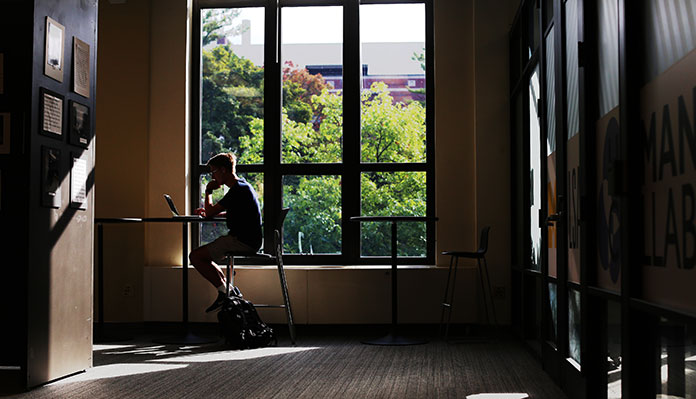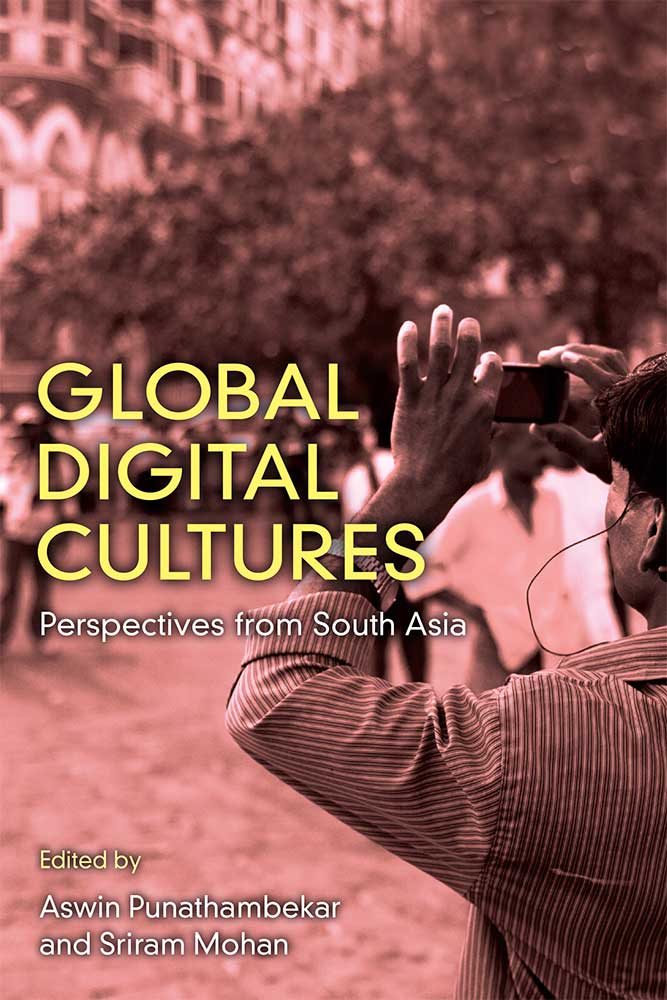Democracy, Civic & Global Engagement | Life-Changing Education | Advanced Technology
Opening Access to Books Increases Reach and Engagement

Letting people read a book for free can actually be good business. Open Access (OA) expands the purchasing audience and supports authors’ ambitions to reach all readers who need their work, not just those who can afford to buy it.
Making books OA presents special challenges because of high production costs and lack of humanities funding. Author-pays business models create potential new inequities, so Michigan Publishing partners with collective funding initiatives such as Knowledge Unlatched, TOME, and Lever Press.
Authors in disciplines such as political science, area studies, and performing arts are responding to the opportunity the Press now offers, but for different reasons.
Abigail De Kosnik worked with co-editor Keith Feldman and The Color of New Media collective to publish #identity: Hashtagging Race, Gender, Sexuality and Nation. As both authors note, the collective “stands for inclusivity and accessibility in new media studies, so it was deeply important to us that our book be made available in an open-access edition….We wanted our work to reach as many people as possible, and open access is facilitating that goal.”
Jacob Smith’s ESC: Sonic Adventure in the Anthropocene uses OA to enrich digital scholarship. His book’s “chapters” are mostly audio files. “Michigan had the vision to recognize the potential for this new model for academic publication, and the unique set of skills and infrastructure required to make it work…. Michigan Publishing was a wonderful collaborator at every step of the way,” said Smith.
Aswin Punathambekar and Sriram Mohan saw an opportunity to engage a broader international audience for their edited volume, Global Digital Cultures: Perspectives from South Asia. For them, OA also facilitates cross-disciplinary engagement, aligned with the ambitions of the University’s Global Media Studies Institute.
While authors’ primary motivations are different, being able to offer an OA option can provide acquiring editors with a competitive advantage. Through its support of sustainable OA, Michigan Publishing is also catalyzing engagement with the next generation of humanities scholarship.
Project Partners
Knowledge Unlatched makes scholarly content freely available to everyone and contributes to the further development of the Open Access (OA) infrastructure.
Towards an Open Monograph Ecosystem (TOME) advances the wide dissemination of scholarship by humanities and humanistic social sciences faculty members through open access editions.
Lever Press is a scholarly press operated in partnership between the Oberlin Group, Amherst College Press, and Michigan Publishing Services and is supported by a consortium of fifty-four liberal arts institutions of higher education.


